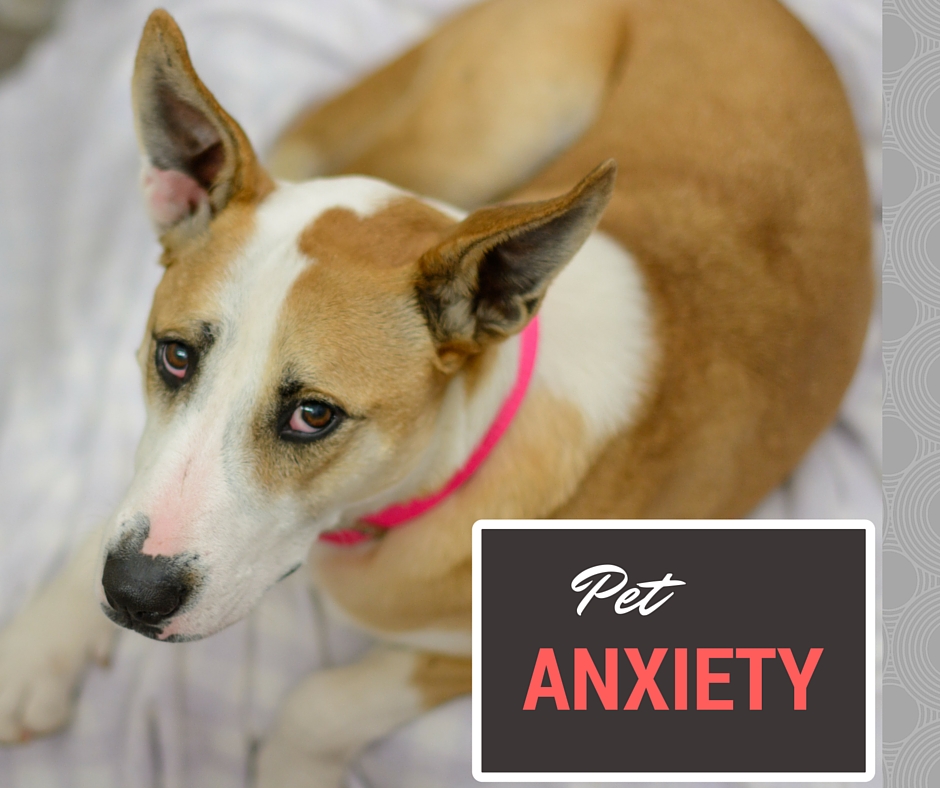Does Your Pet Show These Top Signs of Fear and Anxiety?

What is Anxiety?
Anxiety occurs when your pet is fearful, or preoccupied, with worried thoughts from a perceived unknown origin. You may have heard of anxiety before, but have you ever personally experienced it? It is very important to know what anxiety is and how it can affect your pet’s health and overall well-being.
Does Your Pet Display These Top Signs of Anxiety?
- Your pet hides when unfamiliar objects and/or people are in the same room. He feels unsure about the situation and tries to find comfort and protection in what he considers a “safe” place.
- Loud noises make him startled. Your pet may jump, bark, growl, hiss, or run away the instant that loud noises are heard. He or she may be fearful and is anxiously-stimulated by the following sounds: thunder, doorbells, footsteps, etc.
- He paces back-and-forth and smacks his lips.
- Your cat meows excessively during car rides. Your dog hyper-salivates and paces during car rides.
- He anxiously licks or bites himself.
What Can Help Reduce My Pet’s Anxiety?
There are many ways to help create an anxiety-free environment. Understanding your pet’s behavior, and approaching him in way that he recognizes as “safe” is the best approach. With understanding animal behavior, you can recognize the signs of distress and how to best approach them naturally, or you can ask your veterinarian to prescribe a sedative-type of medication to ease anxious thoughts.
What Can I Do For My Pet?
Scheduling an appointment with your Veterinarian is recommended. An examination can help rule out any other health concerns that may be causing anxiety including pain. South Town Animal Hospital offers a specific behavior assessment to help address the signs of anxiety and behavioral disorders, which can be very beneficial in developing a plan to help address the very specific needs of your pet. In addition to offering a behavior assessment, we also provide our patients with calming pheromones used aromatically and topically, practice lower-stress handling techniques, and prescribe anti-anxiety medication when necessary.
Call us at (847) 695-7387 for more information.



